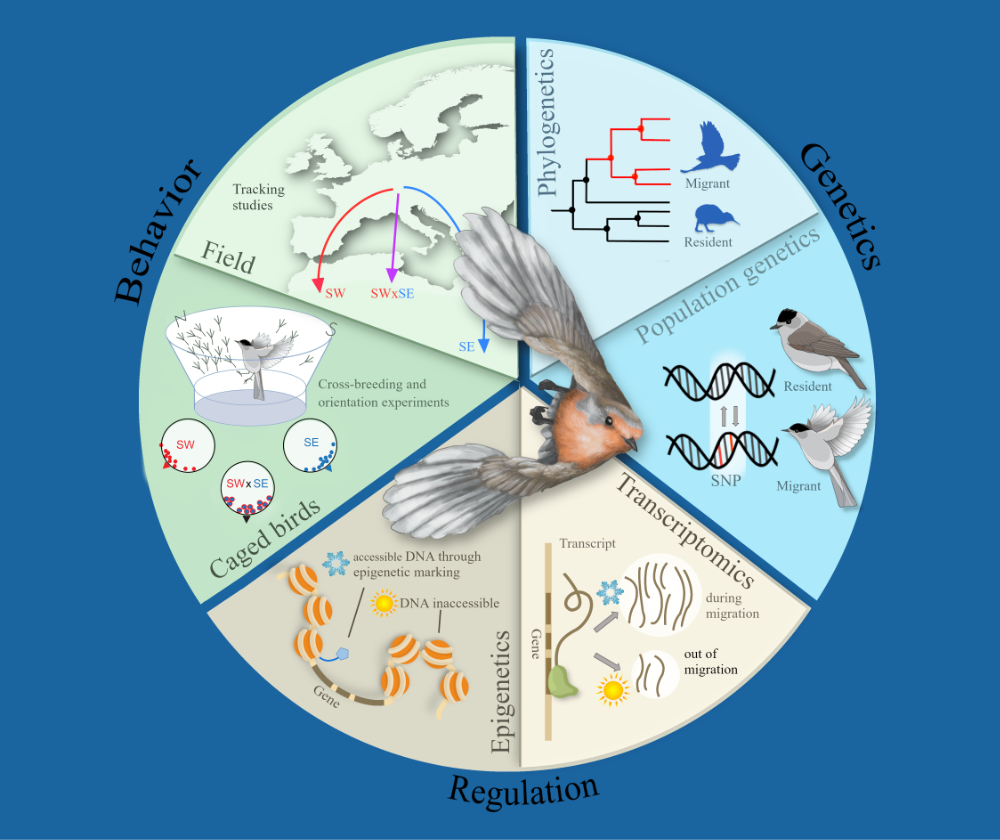Speaker
Description
Georg Manthey, Miriam Liedvogel
As was shown in countless experiments, young migratory songbirds can find their way over hundreds of kilometers without guidance of their parents or other conspecifics, showing that there is a genetic basis to migratory direction. Behavioural experiments on Eurasian blackcaps have suggested that migratory direction is inherited following mendellian rules, suggesting that only very few genetic variants (in conjunction with the environment) are responsible for the diverse migratory directions observed in the wild. However, whole genome studies investigating the genetic basis of migratory direction in blackcaps have not been able to conclusively find a single genetic variant explaining much the variance observed. Given that migratory direction is a fairly complex behavioural trait, most likely expressed somewhere in the brain, it would not be surprising if many genes are involved in its mediation. Combined with the fact that in the blackcap we find a multitude of directions, much more than could be explained by just a single gene, causes us to question the assumption of only a few genetic variants contributing to a migratory direction. Instead, we aim to search for a polygenetic basis of migratory direction in a dataset of migratory Eurasian blackcaps, which express many different directions within Europe and discuss here different methods that might be employed to model and test such a polygenetic basis, while also integrating the possibilities of environmental interaction and individual plasticity.

